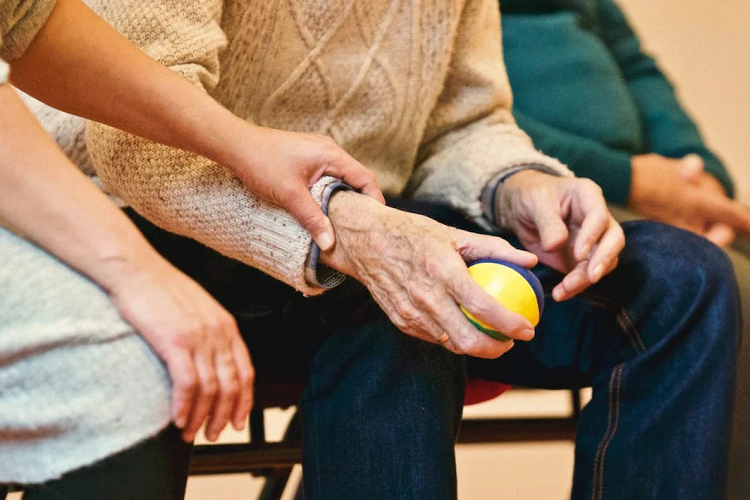Making the right choice when selecting a nurse for elderly care is crucial. It is about ensuring your loved ones are cared for with respect, comfort, and medical assistance in their golden years. Such a decision requires clear thinking, meticulous research, and a good understanding of what to look for in a nurse. This article aims to guide you on the important aspects to remember as you make this significant decision for your elderly loved ones. Let’s delve into these key considerations without further ado, ensuring the best choice for those you hold dear.

Recognize Your Elderly Loved One’s Needs
Knowing your elderly loved one’s unique requirements is a pivotal first step. Ask yourself – What help do they need? Do they need support for everyday tasks such as bathing and cooking or medical attention for specific health issues? Answers to these inquiries help zero in on nurses specializing in those care areas. It’s crucial to include your loved ones in these discussions. It ensures their comfort and that they will be satisfied with their care.
1. Evaluating the Nurse’s Qualification
Begin by highlighting the vital role of credentials. A registered nurse with the necessary training is non-negotiable. Look for the following details:
- Delve into their qualifications. A nursing degree from the local nursing board and additional certifications are markers of their professional competence.
- Note their specialized training. Suppose they’ve completed programs like the 12 month FNP program online. In that case, it’s an added guarantee of their ability to offer comprehensive elderly care.
- Remember, qualifications aren’t just for technical proficiency; they provide peace of mind. When you’re confident your loved ones are in professional hands, it eases worries.
2. Consider the Nurse’s Specialization
Embarking on the process of identifying the proper nurse for elderly loved one involves numerous considerations, one of the foremost being the nurse’s field of expertise:
- Begin by understanding that nurses differ in their specializations, each having a unique field of expertise.
- Should your loved one be dealing with specific health issues such as Alzheimer’s or diabetes, the choice of a nurse should pivot towards those skilled in these particular areas.
- Such nurses bring to the table familiarity with the best care practices and stay in touch with the newest breakthroughs, treatments, and interventions in their specialty area.
- The advantage of this focus is that it ensures your loved one receives care that is tailored, current, and of the highest standard.
3. Assessing Nurse’s Communication Skills
Evaluating a nurse’s communication skills is integral to selecting the best care for your elderly loved one. Here’s what to focus on:
- Clarity in medical explanations: The nurse should be adept at simplifying medical jargon into understandable language. It ensures that your loved one, and you, are always aware of the medical situation at hand.
- Attentive listening: The nurse needs to listen to your elderly loved one’s concerns truly. It shows they value their thoughts and feelings, fostering a relationship of trust and comfort.
- Frequent updates: The nurse should inform you about your loved one’s health status. Regular updates allow you to stay involved in their care and make informed decisions.
- Approachability: The nurse should have a friendly demeanor encouraging your loved one to share their feeling. An approachable nurse can help your loved one feel at ease.
- Empathy: A good nurse should demonstrate compassion, recognizing and responding to the feelings and needs of your loved one. This emotional connection can significantly improve the care experience.
- Respect: The nurse should uphold the dignity of your elderly loved one, treating them with the respect they deserve.
4. Understand the Costs Involved
Navigating through the financial landscape of elderly care is an essential step in selecting the proper nurse for your loved ones. Below are a few points to guide you:
- Begin by understanding the billing structure of potential care providers. It could be hourly, daily, or monthly rates.
- Next, determine what aspects of the care services are covered by your current insurance plan.
- Explore available financial aid options. Assistance programs may be available that can help offset the cost of care.
- Always remember affordability doesn’t equate to value. Strive to find a balance between price and quality care.
5. Check Nurse’s Experience with Elderly Care
Evaluating a nurse’s experience in elderly care can make a difference in your decision-making process. Here’s why:
- Deep Skillset: With years in the field, nurses accumulate a wealth of knowledge and skill. They learn to respond effectively to the unique needs of older adults.
- Patience: Seasoned nurses have cultivated patience, an indispensable trait when caring for the elderly.
- Adaptability: Experience teaches nurses to adapt their approach to catering to different individuals, a key factor for personalized care.
- Knowledge of Common Health Issues: Nurses experienced in elderly care are well-versed in typical health challenges that older adults face, preparing them for efficient responses.
- Emergency Readiness: An experienced nurse’s response can be critical in a crisis. Their exposure to diverse situations equips them to handle emergencies better.
6. Availability and Flexibility
Choosing the proper nurse for elderly loved one isn’t only about qualifications and experience; it’s also about ensuring the availability and flexibility of care.
- The selected nurse should align with your schedule. Whether it’s overnight care or specific daytime hours, they should be ready to adapt.
- Weekend availability is another important factor. The nurse should be capable of providing the necessary care during weekends if the need arises.
- Emergencies are unpredictable, so it’s vital to have a nurse who can respond promptly. The nurse should be ready to act or have a backup plan in case of sudden health changes.
Conclusion
Choosing the right nurse for elderly care requires thoughtful consideration, thorough research, and a good grasp of your loved one’s needs. With these points in mind, you’re well-prepared to decide to ensure the best care for your elderly family member in their twilight years. No one can underestimate the importance of caring and professional nurses; they can truly enrich the life of the elderly person under their care. Remember, the journey doesn’t end with choosing; it’s about constant evaluation and flexibility to ensure continued quality care.


